The Cottrell-Baldwin Environmental Lecture Series
- Tags:
- Education
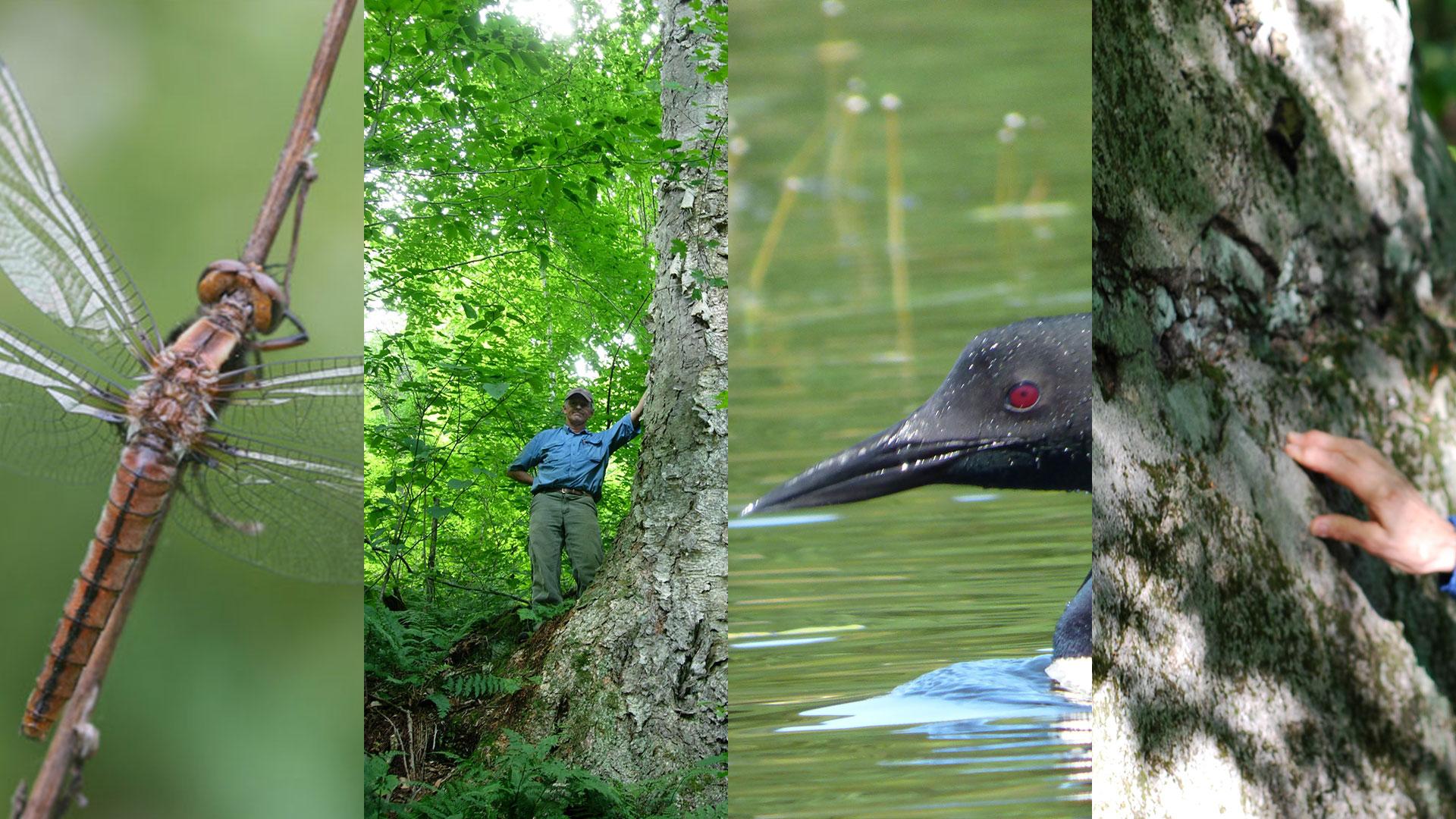
HILLSBOROUGH, N.H. – Join the Society for the Protection of New Hampshire Forests (Forest Society) and The NH Division of Forests and Lands, Department of Natural and Cultural Resources for the 2019 Cottrell-Baldwin Environmental Lecture Series at the Henry I. Baldwin Environmental Center at Fox Forest in Hillsborough. This year’s series explores topics from the bedrock that underlies the hillsides of the Granite State upward to the original forests that covered them, to the loons whose haunting voice echo across our spring time waters, and dragons and delicate damsels that dance through the summer air.
The lecture series will be held on Tuesdays, March 19 through April 9, 2019 at the Caroline A. Fox Research and Demonstration Forest at 309 Center Road in Hillsborough. Attendees can join for one presentation or all four, pre-registration is not required. Each lecture has been assigned 1.5 Category 1 SAF CFE education credits for licensed New Hampshire Foresters. For more information, call 603-224-9945 ext. 313.
“The lecture series is an annual tradition celebrating New Hampshire’s natural world,” states Dave Anderson, senior director of education for the Forest Society. “We are covering fascinating topics in this series from dragonflies to loons, from the granite bedrock of New Hampshire to old growth forests.”
Directions: From the traffic lights at the junction of West Main St. and Rt. 149 in downtown Hillsborough go north on School Street (which becomes Center Road after the school). Fox Forest is approximately 2 miles on the right.
Below is a summary of the four lectures.
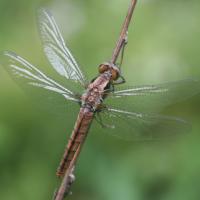
Tuesday March 19, 7 pm
Speaker: Dr. Pamela Hunt, Avian Conservation Biologist, NH Audubon
Welcome to the fascinating world of the insect order Odonata! You may be familiar with the dragonflies buzzing over your yard in the summer, or the damselflies that land on your kayak, but what do you REALLY know about these ancient insects? Pamela provides an overview of the biology and ecology of dragonflies and damselflies, from their amazing life cycle (content alert: some pretty crazy reproductive behavior is involved!) to their incredible diversity. She will reveal highlights a few of NH's notable species and their stories, and provide some results from the “NH Dragonfly Survey,” a five year volunteer-based project to document the distribution of these insects across the state.
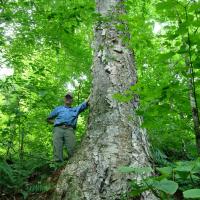
Tuesday March 26, 7pm
Speaker: Charles Cogbill, forest ecologist and co-author of The Changing Nature of the Maine Woods.
Charles will provide a fascinating introduction to the forests of New Hampshire from the emergence of the forests 12,000 years ago at the end of the Ice Age to the time of European arrival. We will learn about the latest in scientific research that helps explain how the forests have changed over time to what we have today. Charles will also discuss (the role of) key ecological forces such as climate change, insects, disease and wind storms and other agents of forest change.
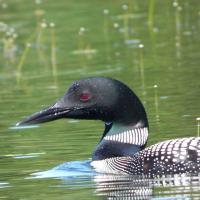
Tuesday April 2, 7 pm
Speaker: Harry Vogel, Senior Biologist/Executive Director of the Loon Preservation Committee
The Loon Preservation Committee was formed in 1975 with its mission to restore and maintain a healthy population of loons throughout New Hampshire; to monitor the health and productivity of loon populations as sentinels of environmental quality; and to promote a greater understanding of loons and the larger natural world. Come learn more about loon natural history, challenges facing loons, and LPC’s activities in support of loons in New Hampshire.
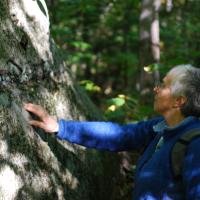
Tuesday April 9, 7pm
Speaker: Frederick “Rick” Chormann, New Hampshire State Geologist
People always think it’s all about granite in New Hampshire – the “Granite State” identity dates back to the early nineteenth century, even before the First Geological Survey was authorized by the state legislature in 1839. Although the nickname is well-deserved given the widespread occurrence of granite and early importance of granite quarries as local, then commercial, sources of building stone, it fails to convey the true complexity of the geology that is found here. Learn more about the State’s glaciated landscape (and what lies beneath it) from our State Geologist and Director of the NH Geological Survey.
ABOUT THE FOREST SOCIETY
The Forest Society is a private, non-profit land trust and forestry organization established in 1901. It currently holds more than 750 conservation easements statewide permanently protecting more than 135,000 acres of New Hampshire’s landscapes. The Forest Society also owns 185 forest reservations constituting more than 56,000 acres in 105 New Hampshire communities.
#####
For more information: Contact Dave Anderson, Sr. Director of Education, danderson@forestsociety.org or 603-224-9945 ext. 335.
